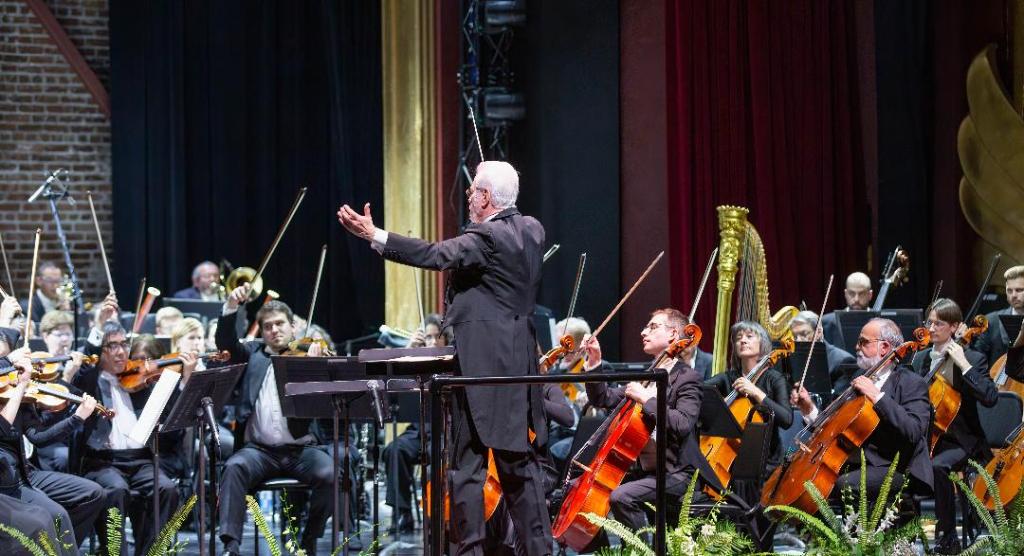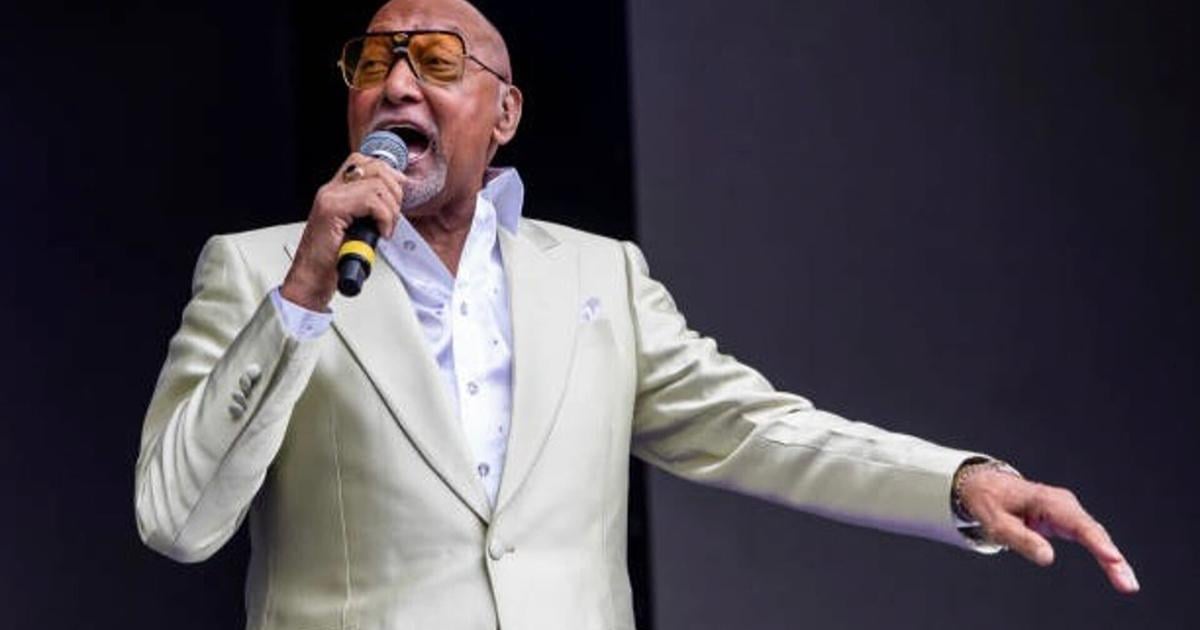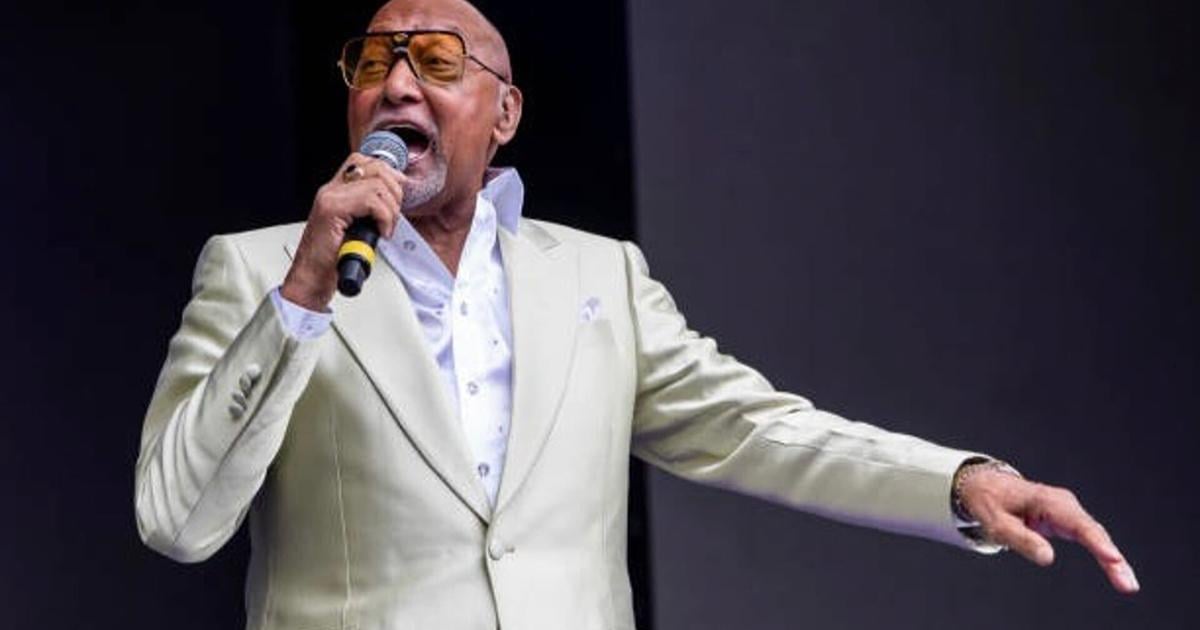The Israel-Hamas War, launched on Oct. 7, continues, with women and children among the thousands dead, and little hope for a ceasefire as the conflict roils the Middle East.
The Russian invasion of Ukraine, which started on Feb. 24, 2022, lingers, with neither force showing signs of conceding.
Former President Trump, meanwhile, faces scores of charges in four criminal indictments, with the first trial, a campaign hush-money case involving an adult film actress, set to begin March 25 in New York City.
Enter the music of Beethoven.
“I feel the world needs Beethoven now,” said Thomas Conlin, the Vallejo Festival Orchestra conductor and founder. “If you look at the world, including our own country, people are angry, frustrated and puzzled.
“We need a stabilizing response — and that would be Beethoven.”
And so the Grammy Award-winning longtime orchestra leader has backed up his belief by leading the orchestra in an all-Beethoven program called “The Glory & Grandeur of Beethoven.” The concert — featuring four of the German composer’s greatest compositions, including one which changed the entire course of Western music — begins at 7:30 p.m. March 2 in the historic Empress Theatre in downtown Vallejo.
The four works include three dramatic overtures: The “Egmont,” “Coriolan” and the one for “The Creatures of Prometheus,” the latter a ballet. They comprise the concert’s first half. The second half will be devoted to the “Eroica” (heroic) Symphony, which Conlin, during a telephone interview Tuesday, called “monumental.”
Written in 1803 and Beethoven’s third symphony — and composed when his deafness became nearly total — it was twice as long as any symphony had ever been. It features a huge opening movement; a funeral march of considerable depth and expression in the second; a spirited scherzo in the third; and a finale that takes a somewhat cast-off theme from the latter part of the “Prometheus” and turns it into a theme-and-variation movement of considerable emotional intensity.

Also, consider that the sheer length of the first movement was revolutionary, at 691 measures, plus an exposition repeat of 151 measures.
“The ‘Eroica’ is rich in heroic, powerful, noble melodies, along with moments of joy, drama, tension, all ultimately resolved in a triumphant celebration of humanity,” said Conlin, who has conducted the work over the years with eight different orchestras. “The ‘Eroica’ was the first great musical expression of the ideals of the Age of Enlightenment.”
The first movement alone heralded the beginning of the Romantic era in Western classical music and redefined the symphony’s shape.
“He really started all this,” Conlin said of Beethoven. “This symphony was so shattering.”
Clocking in at about 50 minutes, it’s early Beethoven striving for attention and thunder, the composer we seem familiar with, as heard in snippets and excerpts in popular culture, in TV and radio ads. After the third and to the ninth symphony, he paved the way for Schubert, a contemporary, Brahms, and others. They include Mahler, Bruckner and Wagner, the latter who was inspired by Beethoven’s final symphony, the “Choral,” and formulated the concept of Gesamtkunstwerk, a German word meaning an “all-encompassing work of art.”
Beethoven’s compositions typically explore universal themes such as love, heroism, despair, and exultation. They came during the early 19th-century upheaval of nationalism and the last gasp of old regimes in Western Europe, including the fall of Napoleon, who had declared himself emperor of France. Story goes that when Beethoven heard that Napoleon had elevated himself to god-like status, the composer angrily and furiously erased the score’s front-page dedication to the French leader.
“Many great works of art and literature were created during times of stress,” said Conlin. “It’s easy to picture Beethoven hiding in the attic, which he did.”

The political and social distress in Europe in Beethoven’s time compares to that which we are experiencing today, he asserted, adding, “His personal struggles, including his battle with deafness, add depth to his story, making his music even more powerful and inspiring.”
The “Coriolan” Overture (1807), one of Beethoven’s most frequently performed and recorded works, was written to accompany the play by Heinrich Joseph von Collins. It begins darkly but a lyrical theme emerges. The second section is brief and the third section, or recapitulation, turns intense and grim, fading eventually to a silence, suggesting the death of Coriolanus, a Roman general, and his effort to restore his honor.
The “Egmont” Overture (1809 to 1810) was based on Goethe’s “Egmont” play about the Spanish persecution of the Dutch people and suggests the struggle for freedom, a theme Beethoven explored in the composer’s only opera, “Fidelio.”
For many years, the piece has been a staple in concert halls. It begins in a somber, serious and dark mood, seemingly to represent the tyrant, the Duke of Alva. But toward the end, the overture turns triumphant and celebratory.
Conlin called the trio of overtures “a sort-of mini-suite” that will “make a nice combination” with the “Eroica” Symphony.
Conlin said many of the orchestra’s musicians regularly perform with the San Francisco Symphony, San Francisco Opera and Ballet orchestras. The rest are among the finest musical freelancers in the Bay Area, he added.
For the Beethoven program, Conlin will lead 52 musicians, “about 12 fewer than Beethoven had,” he said.
He acknowledged that in the composer’s time, 1770 to 1827, orchestras then used what are today called “period instruments,” yielding timbres, balances and articulations rarely heard in modern concert halls and typically only by period instrument ensembles.
But Conlin said many musical instruments “have been greatly improved upon” since the middle and latter part of the 19th century, but he conceded that trying to recreate the sound the early composers wrote for “is much discussed” among the cadre of conductors trying to achieve “authenticity.”
He characterized the orchestra’s configuration, with its 36 strings, “the ideal size” for the Beethoven showcase in a theater he describes as having first-rate acoustics “and no bad sight lines.”
Conlin’s resume shows him as a frequent guest conductor with opera and ballet companies and symphony orchestras on five continents, in recent years in Belgium, Brazil, Canada, Colombia, Egypt, Germany, Ireland, Italy, Japan, Korea, Norway, Poland, Russia, Spain, Turkey and throughout the United States.
Founded in 2020, the Vallejo Festival Orchestra debuted with “Three Tenors! — the Next Generation,” an evening of Italian opera music featuring three talented young tenors who have gone on to substantial careers. Subsequent programs have each been built around single composers: Tchaikovsky, Wagner, Sibelius, Johann Strauss, and now Beethoven.
For more than 200 years, Beethoven’s music has continued to speak to the universal human experience, said Conlin, adding, “At this concert you’ll hear for yourself why so many lovers of classical music consider Beethoven the greatest composer ever.”
IF YOU GO
What: Vallejo Festival Orchestra
“The Glory & Grandeur of Beethoven”
When: 7:30 p.m. March 2
Where: Empress Theatre, 330 Virginia St., Vallejo
Tickets: www.empresstheatre.org
or (707) 552-2400





